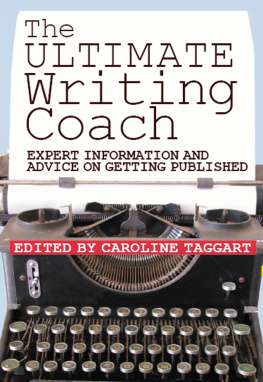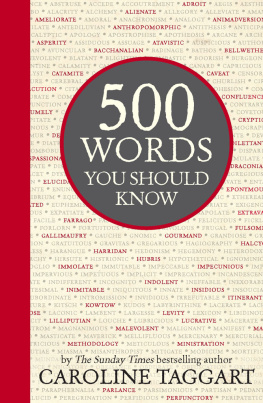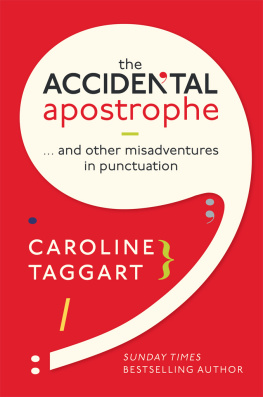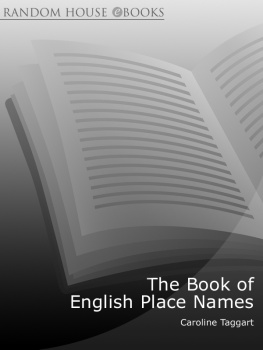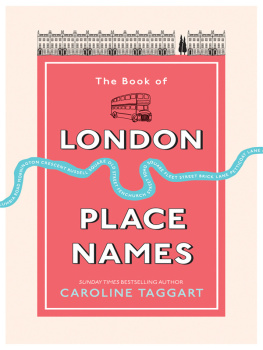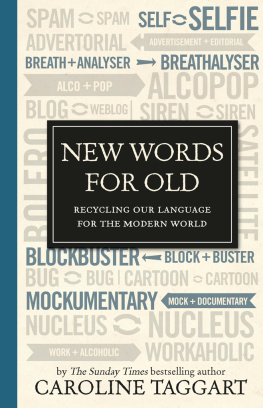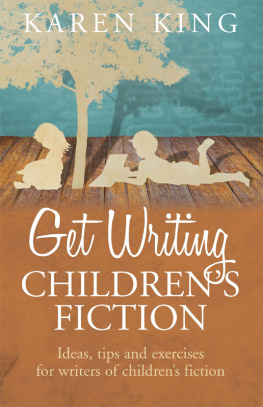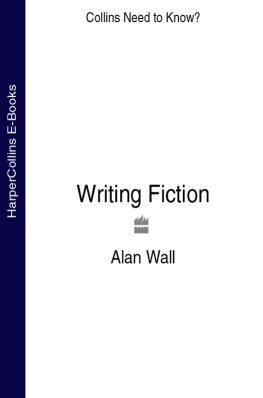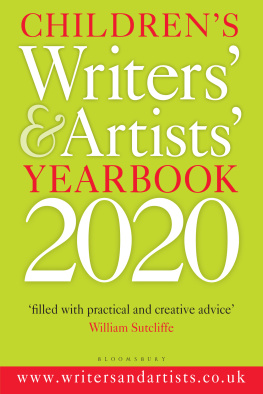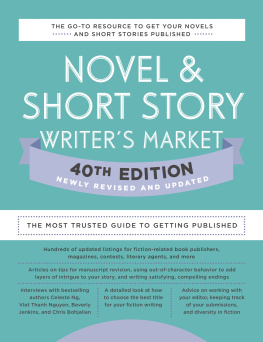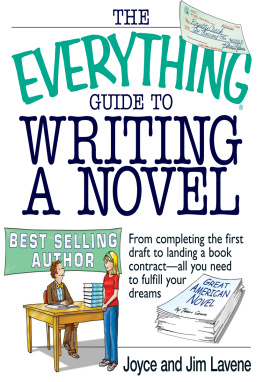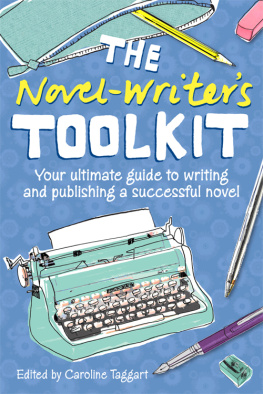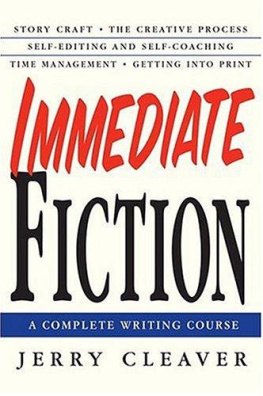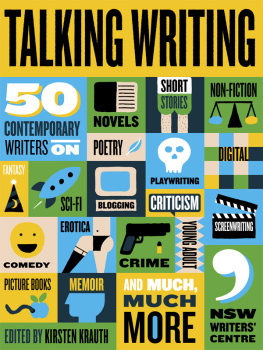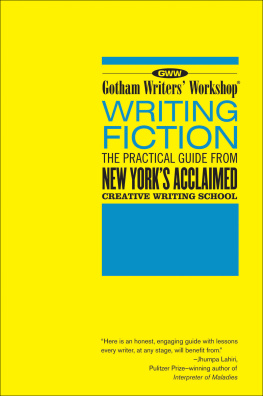INTRODUCTION
KATIE FFORDE
If you decide to start training for a marathon someone you know will see you puffing up the hill looking less like Paula Radcliffe than a walrus in shorts. The joy of deciding to write a novel or indeed to write anything is that while it's just as hard as running a marathon and probably takes far longer to achieve, it is at least private. You don't need to tell anyone what you're getting up to unless and until you choose to.
Even knowing this, that first attempt at any sort of writing beyond an off-games note for your child is hard. While computers have mostly got rid of the blank sheet of paper that is so utterly terrifying, there is still that blank computer screen. The way I got over this was simple but blush-making: I typed out the first paragraph of someone else's book, a book I had thought bad for various reasons. My cunning plan was to re-write it, thus saving myself hours of agony.
The first paragraph was enough. I was so frustrated with the other book, and so full of the story I wanted to tell, that I forgot about not knowing how to start and just jumped straight in.
So why would any apparently sane person want to write? Why would anyone want to shut themselves up in a room on their own, for the most part, making things up? I suspect there are as many answers as there are writers, but it's something to do with getting the story out of your head, onto the page and then into the head of another person. They won't get it exactly as you've thought it, however well you've written it, but if they are convinced, that's enough.
I WAS SO FRUSTRATED WITH THE OTHER BOOK, AND SO FULL OF THE STORY I WANTED TO TELL, THAT I FORGOT ABOUT NOT KNOWING HOW TO START AND JUST JUMPED STRAIGHT IN
Lots of writers have always written, always had scenarios running through their heads. For them getting all this on paper or onto a computer is logical, and may feel slightly less dotty than chatting away in their heads to people who don't exist.
Others, like me, come to it later. For me it was a desire to do for others what Mills and Boon novels had done for me. The fact that I never managed to get my camel through the eye of that particular needle hasn't changed my motive.
WHAT DO YOU WANT TO WRITE?
Some people think they'd like to write a novel if only they had time (I meet lots of them!) but if you're taking it seriously, the only way to find out if you can write one is by starting.
But supposing you think you'd like to write a novel but are not sure you have the stamina? Consider short stories. Many novelists declare they can't write them and they are difficult. Shorter, yes, but they have to have to be the perfect shape. You can't waste space explaining too much, or having too many characters, or indulging yourself in too much description. Short stories are an excellent discipline, satisfying to read and write, and a great way of developing your writing technique. There is no room for extraneous material in them and if, having written short stories, you move on to novels and apply the same strict rules, your novels will be better.
Articles too are very satisfying, if you can get them right. To the practised article writer, ideas are everywhere you just need to train yourself to spot them. I have a non-fiction writing friend who rarely goes to any social occasion without collecting at least three ideas for articles. She then does some of the research, pitches the idea to relevant editors and, having established interest, writes the piece. The work often has to be done very quickly, thus instilling discipline and a professional attitude to her work.
UNTIL YOU TREAT WRITING AS A JOB, EVEN IF A PART-TIME ONE, YOU WON'T EVER BE ABLE TO THINK OF YOURSELF AS A WRITER
It is not only journalists writing non-fiction who need to find out if what they are considering writing is likely to find a home. Research your markets; if you want to write stories for magazines, read the magazines you are aiming for first. Send away for their tip sheets and follow what they say. If the first submission comes back to you, try to work out why it didn't work, think where else you might offer it and, after a few adjustments, send it out again.
Novel writing does take longer, but the same rules apply. Find out which agents might be interested in your work and pitch it to them. See which publishers are producing what and make sure you don't offer your Sex and the City For Men to a publisher of car maintenance manuals.
BE PROFESSIONAL
You may not have a deadline other than a selfimposed one, but you need some sense of discipline or you'll never get anything finished. It might be very pleasant to drift along enjoying the beauties of nature, writing the odd line as it occurs, but it won't get you anywhere. Until you treat writing as a job, even if a part-time one, you won't ever be able to think of yourself as a writer.
A very disciplined writer friend of mine makes her deadline a couple of months sooner than the one her publisher has set. This gives her extra time to polish, to put the book away for a while so she can read it afresh. This is the perfect way, but for me it's rather like being a size ten infinitely desirable but not ever going to happen. Achieving the original deadline has to be good enough for most of us.
FINDING THE TIME
Having established that you want to write and have the proper professional attitude, but assuming that you already have a job, or a family, or both, how do you find the time? The only answer is to steal it. I gave up ironing, cut down on housework drastically (such a hardship!) and became adept at throwing an onion into a pan as my husband came through the door, to give an impression of cooking, and producing a meal rapidly after that. I started with an hour a day and loved the process so much it soon became stretched to as much time as I could get away with, given that I had small children and the same day-to-day demands on my time that everybody has. Most of us can find an hour a day if we really want to, although if you have children and/or a full-time job you may have to get up very early or stay up very late.
So assemble your tools, your desire to express yourself on paper, your writing equipment (a pencil and paper, typewriter or diamond-studded laptop, whichever works for you) and the perseverance of a marathon runner times ten and write. Then buy your copy of The Ultimate Writing Coach and sell what you've written!

WRITING FICTION
A WRITER'S VIEW
SECRETS OF A NOVELIST
Nia Williams comes clean and confesses to being a writer, and gives you her insights into a successful writing regime
NIA WILLIAMS
Nia's first novel, The Glass Pier, was published to critical acclaim in 2001. Her second, Persons Living or Dead, was published in 2005 and longlisted for the Welsh Book of the Year Award. Her short stories appear in numerous anthologies and magazines, and are broadcast on radio.
I'm a writer. No coy shrugs or selfdeprecating snorts: after 20 years or so, I'm finally out of the literary closet. What kept me in there all that time? Well, for starters, it took me so long to knuckle down and finish anything let alone get it published that even aspiring writer seemed overblown. And when I did get into print, there was no question of dropping the day job. I'm certainly not in it for the money it's much more important than that! So far, my earnings from fiction just about cover my printer's ink.

